
Finally. Your Spirit Animal Coffee has arrived. The beans are freshly roasted. You’re ready for the magic. But there’s one last piece of the puzzle missing: brewing your coffee.
The brewing method you choose will greatly impact the flavor and the body of your coffee. Some methods will allow for richer, more bitter tones to develop. Others will reveal more delicate, fruity ones.
This article will help you get an idea of the three main coffee-brewing methods: pressure, steeping, and drip-brewing.
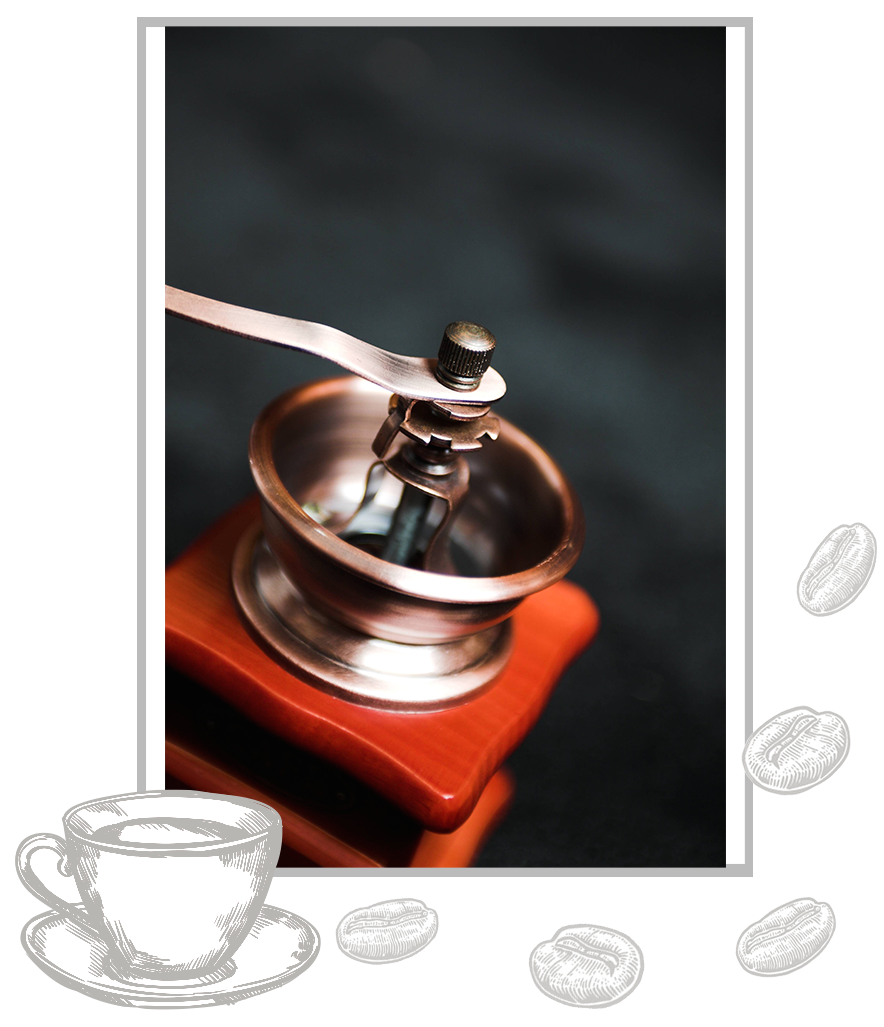
LET’S KICK OFF WITH A DISCLAIMER: NEVER GRIND ALL YOUR COFFEE IN ADVANCE
Grinding the whole bag in advance might seem a practical thing to do. But once ground, your coffee will lose its more delicate aromas in about thirty minutes.
That’s why we suggest keeping a small coffee grinder on your kitchen top and grind your coffee beans each time you’re preparing a serving. Pick a grinder that allows you to easily regulate the coarseness because each brewing type will call for a different grind.
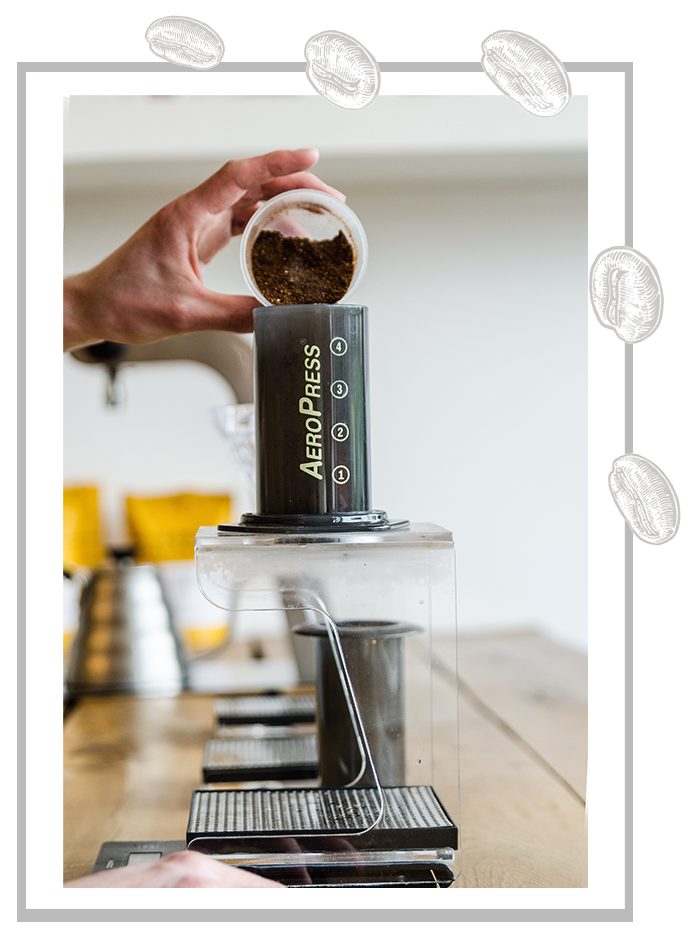
METHOD NO. 1: PRESSURE
Pressure is not the oldest, but it’s definitely the most well-known way of brewing coffee. That’s right: we’re talking about espresso and Moka (aka stove-top). There’s also a more recent pressure brewing device that’s becoming popular among the Third-Wavers: AeroPress.
In pressure-brewing, boiling water passes through your coffee with the help of pressurized steam. This combination of heat + force creates swift extraction times. In fact, an espresso shot is ready in twenty seconds—a fraction of the time compared to the French Press, which takes up to five minutes to brew.
How does it affect your coffee?
Pressure-brewing brings out all the intense, darker notes. It will also give you more crema compared to other brewing types. If you’re a fan of a quick and potent shot, pressure brewing is right for you. Bear in mind, though, that pressure-brewing will quash all the more delicate traits of the coffee. So if if you got yourself a batch of a fine Geisha, this might not be the best way to enjoy it.
What grind to prepare?
All pressure-based methods call for a fine to medium-fine grind.
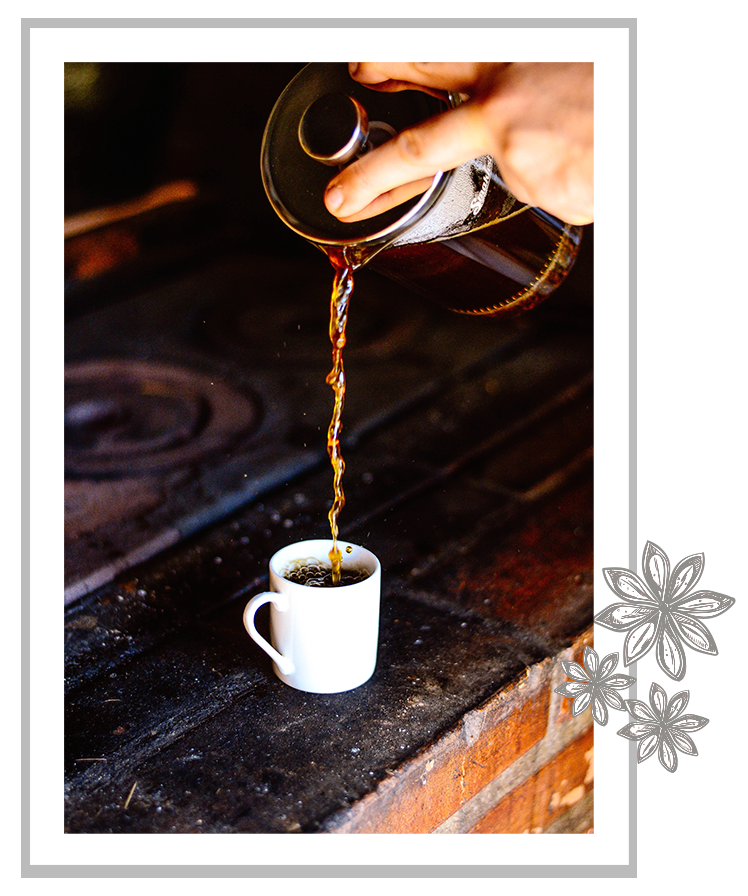
METHOD NO. 2: STEEPING
Steeping is the oldest method of brewing coffee. You mix hot water with coffee, wait a few minutes, and separate the good stuff from the soaked grinds. Sounds easy? It is, but it requires a bit of training to get it right. Steep it too little, and you’ll get tinted water. Leave it in for too long, and you’re in for an acid and bitter ride.
There are a few steeping gadgets out there. But we recommend you steer away from most, and stick to the most widespread mademoiselle French Press.
How does it affect your coffee?
Once you get the hang of it, steeping via French Press can be a great way to savor your coffee. It will allow you to fine-tune the brewing according to the beans you are currently using. The only thing you have to accept is that even the best French Press will always leave a few sediments in your coffee. But hey, that’s also part of the beauty of it, right?
What grind to prepare?
Always go for a coarser grind to minimize the sediments that can pass through the press’s filter.
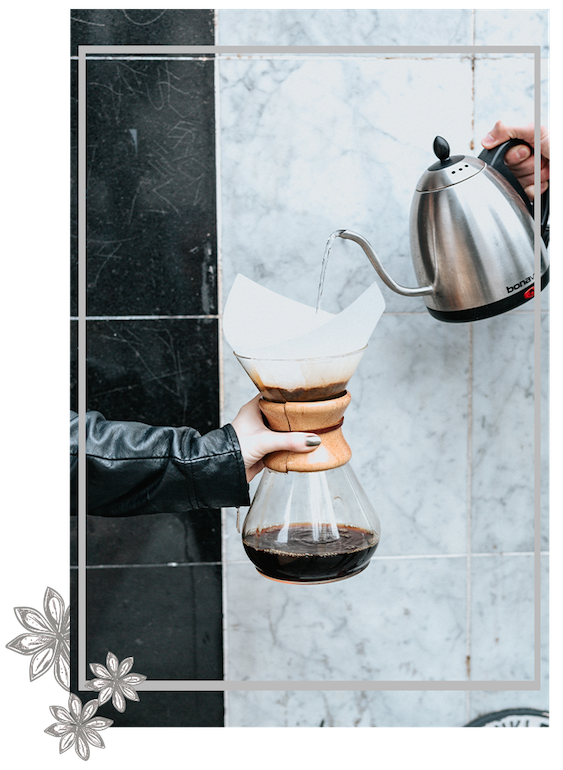
METHOD NO. 3: DRIP-BREWING
In its essence, drip-brewing is pretty straightforward. You put your coffee in a filter. You pour hot water over it and wait for Newton’s law to make your coffee trickle down through the filter. Some of the most prominent drip methods out there are Chemex, Hario v60, and Cold Brew.
How does it affect your coffee?
Here’s the catch. If you just splash hot water over your coffee, you’ll get an undrinkable broth. With drip-brewing, the devil is in the detail. You should first pour over just enough water to make the coffee bloom for a few minutes. Only once it has soaked, you start slowly pouring the remaining water.
This is how you’ll get what drip coffee is meant to give: a clean, light, and delicate cup of joe.
What grind to prepare?
There’s no one-size-fits-all. The grind size depends on many factors, like the thickness of the coffee filter and water temperature (if you use a Hario V60, it should be 91–94℃ / 196–201℉). You have to play around a bit. The best thing is to start with a medium grind and work your way from there.
NOT SURE WHICH DEVICE IS RIGHT FOR YOU?
Well, you’re in for some good news. As you’re reading this, we’re working on preparing a detailed manual for all the devices we mentioned in this post. If you want to grab a free copy when it’s done, head over here and subscribe to our newsletter.
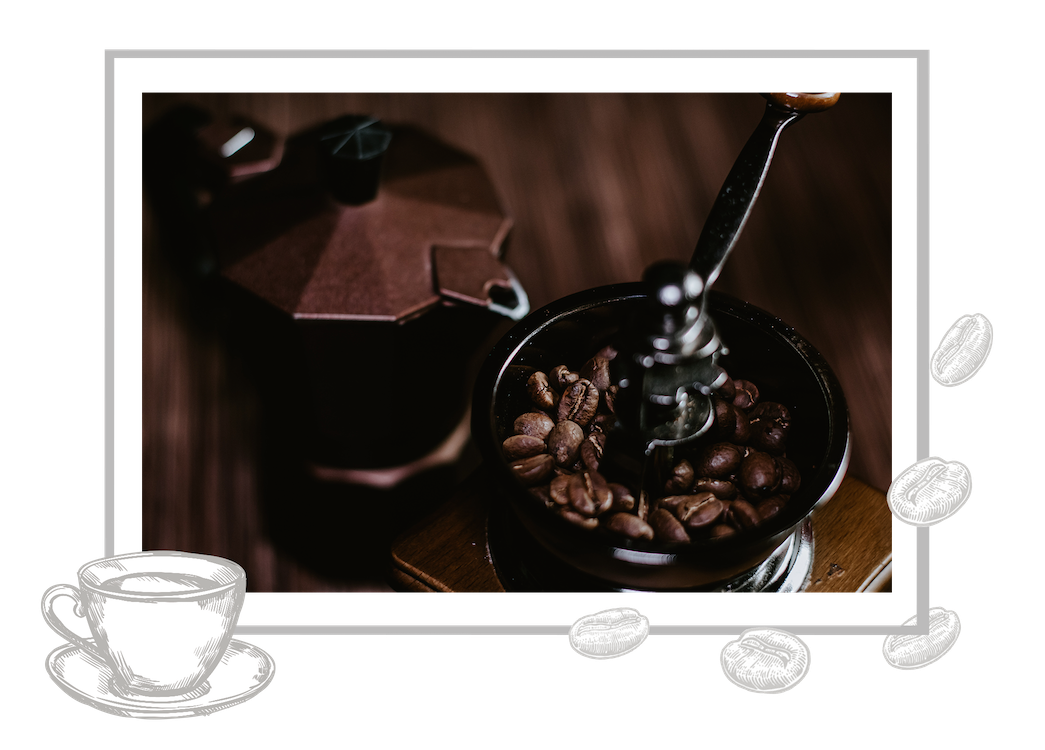
IS PRE-GRINDING THE WHOLE BAG OF COFFEE A GOOD IDEA?
Grinding the whole bag in advance might seem a practical thing to do. But once ground, your coffee will lose its more delicate aromas in about thirty minutes. Also, depending on your brewing method, you might need different levels of coarseness. So we wouldn’t recommend it.
IS DRIP-BREWING REALLY THE BEST WAY TO MAKE COFFEE?
There isn’t a “best” way. Each brewing method will bring out different traits from your coffee. Drip-brewing will allow more delicate, fruitier tones to emerge. If you’re a fan of more potent, darker notes—go for pressure-brewing.
I WAS TOLD YOU CAN’T GO WRONG IF YOU FRENCH-PRESS YOUR COFFEE. IS IT TRUE?
In general, French Press is pretty easy to use. But you need to get the hang of the steeping times, so you don’t over-brew it. It might also not be the best method if you want your cup of joe to have a strong kick. In that case, go for a different brewing method.